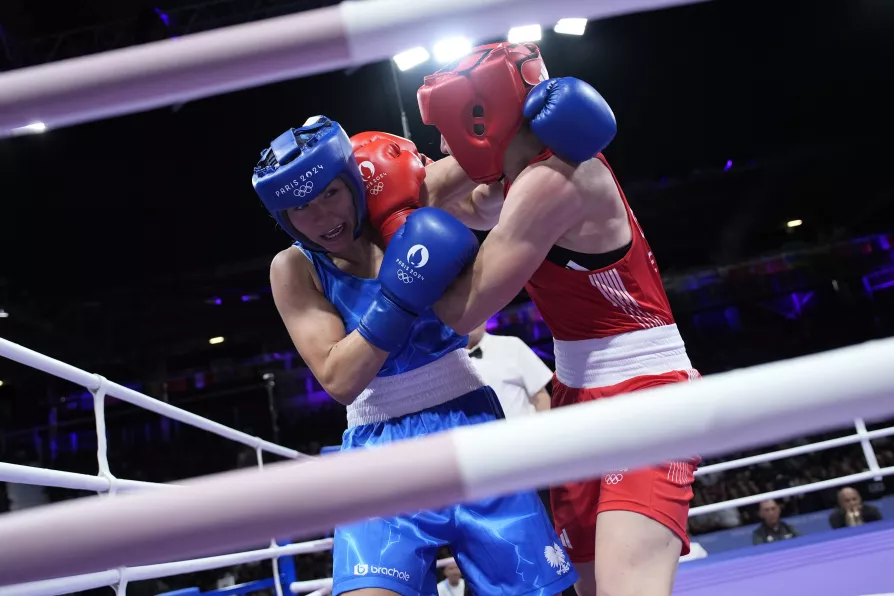
 Britain's Rosie Eccles (right) and Poland's Aneta Rygielska (left) during women's 66kg at the 2024 Summer Olympics, July 28, 2024, in Paris, France
Britain's Rosie Eccles (right) and Poland's Aneta Rygielska (left) during women's 66kg at the 2024 Summer Olympics, July 28, 2024, in Paris, France
THE 2024 Paris Olympics have already succeeded in becoming one of the most controversial Games ever held.
First we were treated to an opening ceremony that reached new heights of provocation for many watching around the world, while when it comes to the women’s boxing event the participation of two intersex fighters has broken new ground. Though not necessarily in a good way.
The sight of Algeria’s fighter Imane Khelif — who was banned from competing as a woman at the women’s amateur world championships last year by the IBA, after failing to pass a gender test — dishing out a vicious beating to Mexican female fighter Brianda Tamara poses a searching and serious question.

The Khelif gender row shows no sign of being resolved to the satisfaction of anyone involved anytime soon, says boxing writer JOHN WIGHT












